Sanskrit Quotes on Rakshabandhan (रक्षाबंधन) and the story behind the festival!

What is Rakshabandhan (रक्षाबंधन)?
As most people from this country would know, Rakshabandhan, Raksh is a Hindu (traditionally) ceremonial annual festival, occurring on the Purnima (full moon night) of the Hindu lunar month of Shravan (Gregorian – August), and the central idea of which is the bond shared between a brother and a sister.
Raksha (lit. Protection) and Bandhan (lit. Bondage, but used as bond), together the nomenclature means The Bond of Protection. Called by different names in different regions, this festival is celebrated throughout the Indian subcontinent, of course with ritualistic differences. The most consistent and common theme being that of tying a protective thread (an amulet) around the wrist of the brother by his sister as a symbol of protection and thereby receiving blessings and presents in return accompanied by a promise of life-long protection by the brother.
The idea is to dedicate a separate day for this sacred relationship of a brother and sister and strengthen the bond between the two. This ceremony is traditionally done between brothers and sisters, but today things are changing. And while some things are Sanatana and will never change with time, some aspects of culture can and should be changed to suit the times we’re living in. Let’s dive a little deeper into the mythology and origin of this festival.

एष प्रभावो रक्षायाः कथितस्तेयुधिष्ठिर।
जयदः सुखदश्चैव पुत्रारोग्यधनप्रदः॥
Transliteration:
eṣa prabhāvo rakṣāyāḥ kathitasteyudhiṣṭhira।
jayadaḥ sukhadaścaiva putrārogyadhanapradaḥ॥
English translation
(Shri Krishna says) Yudhishthira, this is what Raksha-Bandhan brings;
victory, happiness, children, health and wealth.
Hindi translation
(श्रीकृष्ण कहते है,) युधिष्ठिर, यह रक्षाबंधन का प्रभाव है;
जय, सुख, संतान, आरोग्य और धन की प्राप्ति।
Source: – भविष्यमहापुराण|उत्तरपर्व|१३७.७

येन बद्धो बलीराजा दानवेन्द्रो महाबलः।
तेन त्वामभिबध्नामि रक्षे मा चल मा चल॥
Transliteration:
yena
baddho balīrājā dānavendro mahābalaḥ।
tena tvāmabhibadhnāmi rakṣe mā cala mā cala॥
English translation
I
am tying the same protective thread that was tied to the demon king Bali.
Oh Rakhi! Stay firm
and
protect.
Hindi translation
जिस
रक्षासूत्र से दानवों के राजा बलि को बांधा था उसी सूत्र को मैं तुम्हें बांध रही हूॅं।
हे राखी!
स्थिर
रहो और रक्षा करो।
Source: – भविष्यमहापुराण | उत्तरपर्व | १३७.२०

हे ईश्वर! अस्य बन्धनस्य रक्षणं कुरु।
Transliteration:
he
īśvara! asya bandhanasya rakṣaṇaṃ kuru।
English translation
O
Almighty God! Please protect this bond of siblinghood.
Hindi translation
हे
ईश्वर! कृपया हमारे भाई-बहन के बंधन की रक्षा करें।

बन्धुः स्नेहेन मनो बध्नाति यः ।
Transliteration:
bandhuḥ snehena mano badhnāti yaḥ
English
translation
One who ties the heart with affection is the brother.
Hindi translation
जो
मन को स्नेह से बांधे वह भाई।
Source: – śabdakalpadruma

The origin and the mythology of Rakshabandhan
Raja Bali and Goddess Lakshmi (Vishnu Purana)
Asura King Bali, “Demon” King (Pauranik definition, not Vedic), being the grandson of Prahalad, was a great devotee of Lord Vishnu. With his great devotion, receiving boons and through his skills, King Bali was conquering every devta and ruling the whole world. While King Bali performed the Ashwamedha Yagya to win over the Swarg lok as well, Indra, the King of the Devas, got highly insecure about his position, fearful of losing it all, sought help from Narayana himself.
Lord Vishnu then descended in the form of a dwarf Brahmin, a sage, the 5th Avatar of Vishnu, Vamana.
King Bali was known to be a generous King, and Vamana used it to his advantage. Shukracharya (Guru of the Asuras), being the sharp and intelligent personality that he is, he gauged something was off the moment he laid his eyes on Vamana, he warned King Bali.
Vamana asked for “Teen Pada Bhoomi” i.e. “3 foot land” or land how much one can cover in 3 steps. King Bali was not one to deny requests or go back on his words, especially when the request is such a harmless one for a wealthy King. So moving ahead, King Bali granted the wish of the sage. King Bali granted the wish of the sage and soon Vamana took a gigantic form. He took 2 steps and covered the whole universe and all 8 directions, awaiting to take the 3rd one.
King Bali, having lost everything he didn’t know what to do. But turns out inspite of losing all his kingdom, he retained wisdom and humility. He bowed down and offered his head to the hermit and asked him to take the 3rd step. Vamana after doing so, felt really impressed and granted Bali Raja a boon.
Long story short, Raja Bali was granted the boon of being the king of Patala loka and he in return asked Bhagwan Vishnu to become his Dwarpal (gatekeeper) and protect his kingdom. Bhagwan agreed and so he went with Raja Bali resulting in the loneliness of Lakshmi in Vaikunth.
She became restless after a point and on the advice of Narad descended down in the guise of a Brahmin woman in search of her husband who left a little while ago to run some errand. She told King Bali that she had nowhere to go or no place to stay, and can she stay in his kingdom for some time. Mahabali (another name for King Bali) welcomed her with open arms and dutifully protected her like his own.
Soon as the sage woman started living there, the kingdom bloomed and prosperity was seen everywhere. King Bali being happy about this granted her a boon and she asked for the Dwarpal of his kingdom, and that it was he who was her husband. Upon hearing this King Bali realized that the woman standing in front of him was no ordinary and that she was Goddess Lakshmi herself.
A man of his words had to grant the boon but he was concerned who will protect his kingdom now? Lakshmi then tied a sacred thread around King Bali’s wrist, energized it with a mantra and declared that this thread will act as his protection from here on and that he needn’t worry. Even today, Sanatanis or people belonging to the Hindu Dharma, at the time of getting tied a Mauli or Kalava (sacred thread) from a Purohit (priest) on their wrist hear this Shloka from the Purohit’s mouth.

Bring Sanskrit home!
Buy ReSanskrit Merchandise...
See More!

येन बद्धो बली राजा दानवेन्द्रो
महाबलः।
तेन त्वाम् अभिबध्नामि रक्षे मा चल मा
चल॥
Transliteration:
yena
baddho balī rājā dānavendro mahābalaḥ
tena tvām abhibadhnāmi
rakṣe mā cala mā cala
English
translation
I am tying a Raksha to you, similar to the
one tied to Bali the powerful king of demons.
Oh Rakshaa, be
firm, do not waver.
Hindi
translation
दानवों के महाबली राजा बलि जिससे बांधे गए
थे, उसी तरह से यह रक्षा सूत्र तुम्हें बांधती हुं।
हे रक्षा तुम
स्थिर रहना, स्थिर रहना।
Other festivals on Shravan Purnima
It’s not for nothing that this day is revered by all and many different ceremonies across the Indian subcontinent are performed and different people celebrate the day differently. Some of the rituals done or festivals celebrated on this day are.
- Narali Purnima (नारली पूर्णिमा): Observed in the coastal regions, Narali Purnima is dedicated to the worship of the Deity of the oceans, Varuna. Coconut (Nariyal) is offered to the sea as a gesture of gratitude.
- Avani Avittam (आवनी अविट्टम): South Indians are primarily seen engaging in this ritual. On this day the sacred thread worn across the torso by Brahmins (Janeu) is changed annually. It’s taken to the banks of the river and is mostly a community ritual. Avani Avittam is also known as Upkarmanam which means commencement and this day marks the beginning of the Vedic studies by a Brahmin and the commencement of the Yajur Veda is done by the Yajur vedic Brahmins for the next six months. This day is also called as ‘Janeu Purnima’ (जनेऊ पूर्णिमा). As for the nomenclature, here ‘Avani’ is the Tamil month and ‘Avittam’ refers to the Dhanishta Nakshatra out of the 27 Nakshatras in Vedic Jyotish.
- Kajari Purnima (कजरी पूर्णिमा): Women of the household sow Kajri (wheat) in a pot and worship on the banks of rivers. It begins from Kajari Navami (9th day after the Shravana Amavasya or New moon night) and the final ritual is performed on Shravan Purnima evening. It marks the commencement of the season conducive to sowing wheat and barley and hence is of significance to the farmer communities.
- Amarnath Yatra: Shravana Purnima (श्रावण पूर्णिमा) marks the final day of the Amarnath Yatra (pilgrimage journey), which begins on Guru Purnima.
- Balaram Jayanti: This day is celebrated as the birth anniversary of Balaram, the brother of Shri Krishna and an avatar of Sheshnag, and also known for his strength (Bala).
- Hayagriva Jayanti (हयग्रीव जयंती): Celebrated as the birth anniversary of Danav Hayagriva, the son of Kashyapa and Danu and the Horse-headed Avatar of Bhagwan Vishnu.
- Pavitropana (पवित्रोपना): Celebrated widely in Gujarat, the main theme of this festival is the worship of Shiva and Shiva lingam. The observers believe Shiva being the destructor will destroy all evil and all sources of evil too and let prosperity and light shine through.
Rituals on the day of Rakshabandhan
As diverse as this culture is, all families have their own way of doing things but traditionally some rules are followed across the country. Sister prepares an Aarti thali (आरती थाली). The Thali includes:
- Ghee Ka Deepak (fire lamp with clarified butter as the fuel)
- Akshat (unbroken rice)
- Kumkum or Roli
- Traditional sweets
- Supari (Areca nut) – Supari is considered a representative of Brahma, Varuna, Indra and Yama. Also, it’s hard exterior is said to be symbolic of the coarse ego, that we offer and aim to lose.
- A piece of gold jewellery
- Rakhi
- A coin

Traditionally, the brother is made to sit on a short wooden stool called Chauki, surrounded by Rangoli (sacred geometry believed to emit positive energies of Sattva), with his head (crown Chakra) covered.
First lighting the Diya (Agni Tatva), the sister first applies Tilak on the brother’s forehead with her Anamika (अनामिका), the ring finger, of the right hand, and then extends it in upward direction using her Angustha (अंगुष्ठ), the thumb, rice is also followed up after the Tilak.
This is followed by an Aarti or Aukshan (औक्षण) ritual which varies from household to household. Then the Rakhi is tied on the right hand of the brother and sweets are exchanged.
The importance of choosing the right Rakhi
It is believed that the process of the sister tying the Rakhi on her brother’s wrist awakens the ‘Pingala Nadi’ (पिंगला नाड़ी) or Surya Nadi (one of the three primary nadis in our body) in the brother. While there is a trend these days of tying rakhi of different shapes, designs, cartoons, it is not considered auspicious to do so as it creates a Raja Tama predominant energy, as opposed to Sattva.
- Correctly chosen Rakhi is believed to create a protective sheath of Sattvik frequencies and helps BOTH the siblings.
- Nowadays, even Rakhis like the ones including divine symbols like Om and Swastika are out there. One should remember that these Rakhis end up in the trash and such saddening state of divine Siddha symbols through one’s action may cause negative impact of energies on themselves. If such Rakhis are bought, care should be taken to preserve them.
- The correct Rakhi is believed to invoke Iccha-Shakti (desire), Dhyan-Shakti (knowledge), and Kriya-shakti (action) similar to that of Shri Krishna (same frequency).
- One can go for red (Martian colour) and yellow (jupitarian colour) Rakhis primarily, as both are considered auspicious traditionally.
- The smaller the better, as it’s easier to wear such Rakhis for a longer period of time.
As both siblings involved are affected by the energies created it’s a good idea to be conscious about our choices.
The brother vows to protect his sister in every birth and then touches the feet of his sister, honoring the feminine. This is not related to age and even if the sister is younger than the brother this practice is observed as women are called ‘Ghar Ki Lakshmi’ (contextual translation – the bringer of prosperity and abundance in the household).
Rakshabandhan began as a festival honouring the love between a brother and a sister, many people these days do tie rakhis to their sister because they feel a sense of protective energy from them. And it causes no harm, so why not?
May this day rekindle the love between all siblings.

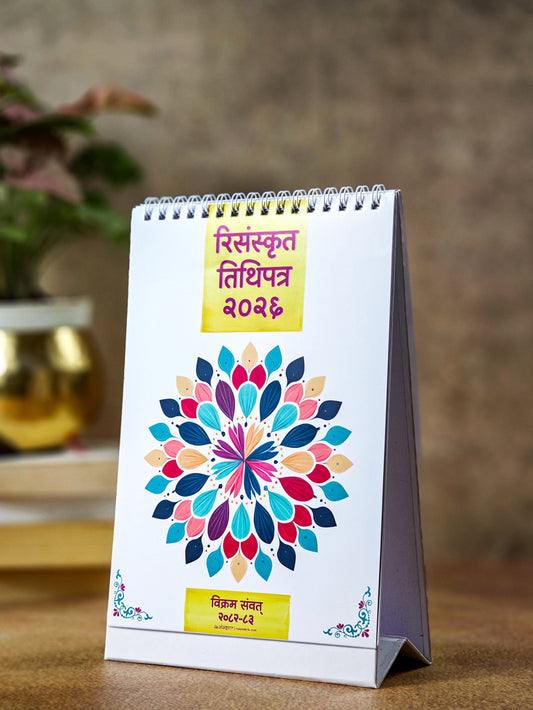

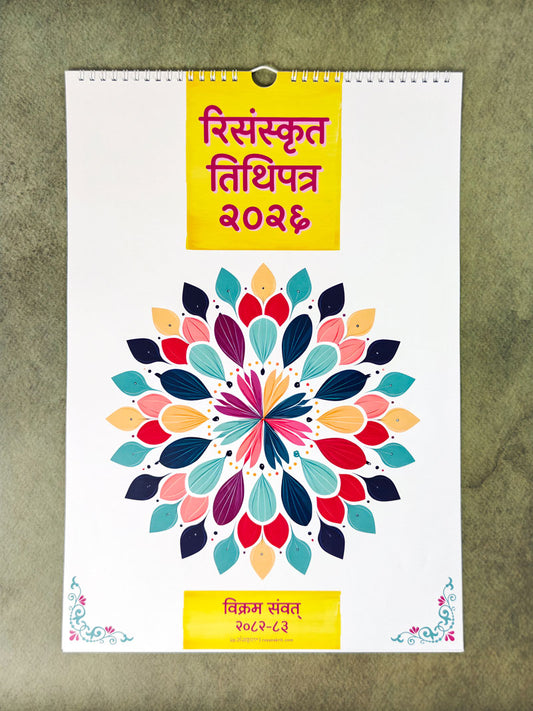

![[New Edition] ReSanskrit® 365 Days of Sanskrit Wisdom | Daily Sanskrit Quotes | With 100+ New Quotes, Hindi & English Translations🆕](http://resanskrit.com/cdn/shop/files/365-calendar-resanskrit-front-hero-shot_533x.jpg?v=1762351171)
![[New Edition] ReSanskrit® 365 Days of Sanskrit Wisdom | Daily Sanskrit Quotes | With 100+ New Quotes, Hindi & English Translations🆕](http://resanskrit.com/cdn/shop/files/365-calendar-resanskrit-quote-shot1_533x.jpg?v=1762351193)
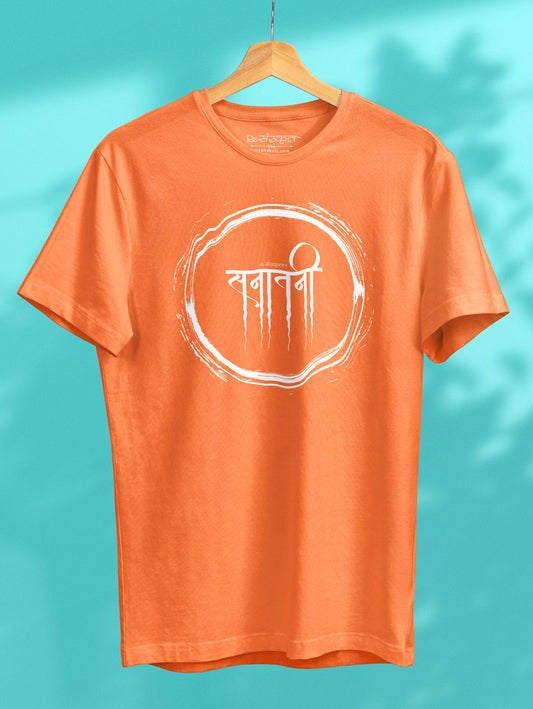
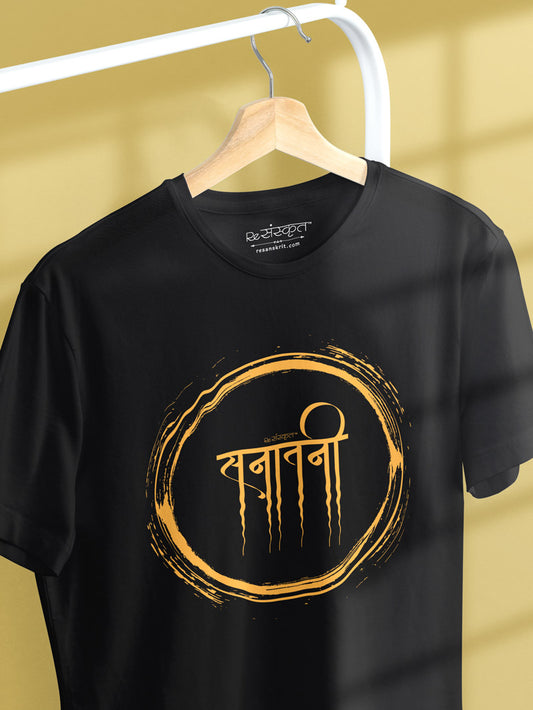

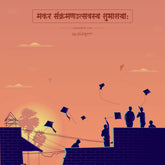
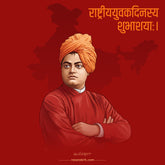
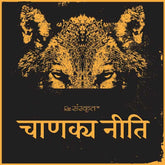
3 Comments
Loved the insightful Raksha Bandhan story on ReSanskrit! It beautifully blends tradition and meaning, making it a must-read.
very helpful content and website
Very nice website. Will help to use Samskritam in day to day life
Leave a comment
Please note, comments need to be approved before they are published.